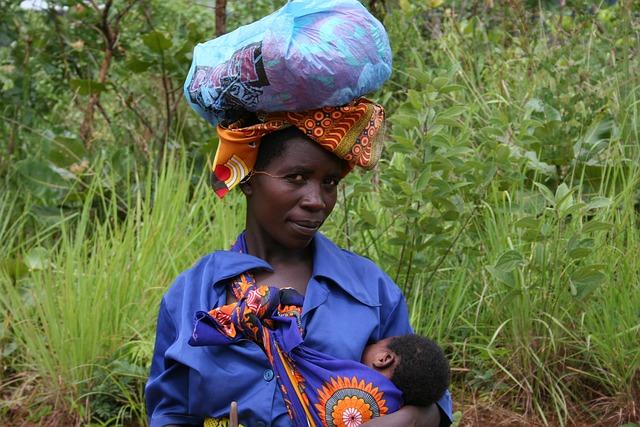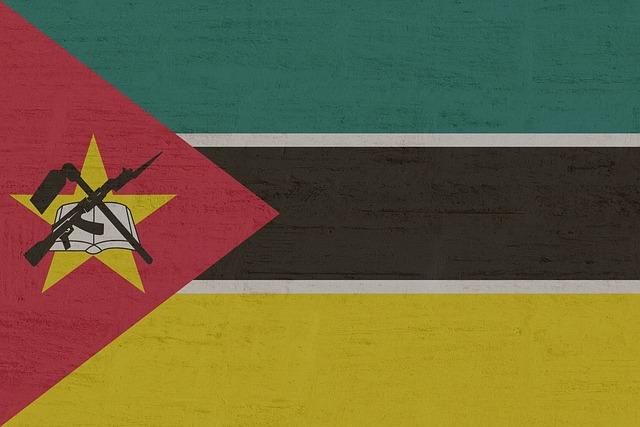In recent months, Mozambique has emerged as a focal point in a larger narrative of youth-led activism that is reshaping the political landscape across Africa. As young peopel increasingly take to the streets to voice their discontent with governance,social injustices,and economic disparities,mozambique stands out as a microcosm of this continental movement. This article delves into the context surrounding the recent protests in Mozambique, examining the motivations behind the demonstrations, the challenges faced by the youth, and the implications for the country’s future. by exploring how these protests fit into a broader spectrum of youthful dissent throughout the continent, we aim to illuminate the urgent calls for change echoing from the streets of Maputo to the corners of cities in Kenya, Nigeria, and beyond. Through the lens of Mozambique’s experiences, we can better understand the dynamics at play in a year defined by a surge in youth activism across Africa.
Youth Mobilization and Social Media as Catalysts for Change
In Mozambique, as in many countries across Africa, social media has become a powerful tool for youth mobilization, sparking movements that address pressing social issues.Platforms like Facebook, Twitter, and Instagram have not only facilitated the association of protests but also amplified the voices of young activists advocating for change. Hashtags have emerged as rallying cries,turning local grievances into a collective discourse and attracting global attention. this digital landscape allows the youth to share their experiences, articulate demands, and build networks with like-minded individuals, pushing the boundaries of traditional activism.
The impact of these online mobilizations is palpable. They have transformed the way civic engagement occurs, leading to a rise in awareness regarding corruption, inequality, and political repression. Young leaders are utilizing innovative strategies to engage their peers through a combination of digital storytelling and grassroots organizing. To illustrate the scope of involvement, consider the following examples of recent youth-led initiatives in Mozambique and other African nations:
| Initiative | Goal | Impact |
|---|---|---|
| Protests for Education Reform | Increase funding for education | Raised awareness among policymakers |
| Campaign Against Corruption | Demand accountability from leaders | Engaged over 10,000 youth online |
| Health Awareness Drives | Promote health services access | Improved community health literacy |

The Role of economic Frustration in Driving Protest Movements
The past year has revealed a growing trend of economic frustration as a catalyst for protest movements across Africa,including Mozambique.Many young citizens have faced escalating unemployment rates, rising costs of living, and a perceived disconnection between their realities and government priorities. This discontent manifests itself in various ways, including social media campaigns, organized demonstrations, and public discussions that challenge the status quo. Issues such as youth empowerment, education, and access to employment frequently serve as rallying points, encouraging a generation that refuses to remain passive in the face of systemic failures.
Furthermore, the influence of global economic conditions cannot be ignored. African nations have often been disproportionately affected by external factors, including commodity price fluctuations and the impacts of international economic policies. Below are some key factors driving economic frustration among the youth in Mozambique and beyond:
- High Unemployment Rates: A significant proportion of educated youth struggle to find jobs.
- Cost of Living Crisis: Inflation continues to pressure household budgets, notably in urban areas.
- Social Media Activism: The rise of digital platforms has facilitated collective action and made information sharing more accessible.
- Corruption and Governance Issues: Distrust in government institutions fuels the belief that economic disparities are a result of poor leadership.

Solidarity Across Borders: Regional Implications for Activism
The recent wave of youth-led protests in Mozambique reflects a growing trend throughout the African continent, where young people are increasingly asserting their voices and demanding change. This mobilization is not isolated; rather, it is a part of a larger tapestry of activism that spans multiple nations, united by similar challenges and aspirations. Key issues driving this activism include:
- Government Accountability: Youth are calling for clarity and responsiveness from their leaders.
- Economic Equality: Widespread discontent over unemployment and economic disparities fuels protests.
- Environmental Justice: Activists demand action against climate change and its disproportionate impact on marginalized communities.
The interconnectedness of these movements signifies a formidable shift in the landscape of activism, with social media acting as a bridge that transcends geographical borders. The lessons learned from Mozambique’s protests can inspire similar initiatives elsewhere, facilitating a ripple effect of solidarity across regions. To maximize impact, regional collaborators are focusing on:
- Resource Sharing: Activists are pooling knowlege and strategies to enhance their effectiveness.
- Coalition Building: New partnerships are being formed across nations to strengthen collective voices.
- International Solidarity: Global support networks are amplifying local struggles to a wider audience.

Policy Responses: Government Reactions to Youth Demands
In response to the mounting pressure from youth-led protests,governments across Mozambique and other African nations found themselves at a crossroads. The demands echoed through streets and social media platforms alike, urging for reforms in education, employment opportunities, and access to basic services.Many leaders, recognizing the urgency of these demands, initiated policy dialogues aimed at addressing core issues raised by the youth. Some of the notable responses included:
- Increased budget allocations for youth programs and education.
- establishment of youth councils to facilitate direct communication between government officials and young citizens.
- Job creation initiatives focusing on technology and lasting practices.
Moreover, the effectiveness of these policy responses varied substantially across regions. While some governments quickly implemented reforms, others faced criticism for their slow pace or lack of genuine engagement. The table below outlines the effectiveness of various strategies employed by selected governments:
| Country | Strategy implemented | Effectiveness Rating |
|---|---|---|
| Mozambique | Youth councils | ‚ėÖ‚ėÖ‚ėÖ‚ėÖ‚ėÜ |
| South Africa | Job creation programs | ‚ėÖ‚ėÖ‚ėÖ‚ėÜ‚ėÜ |
| Keny | Increased education funding | ‚ėÖ‚ėÖ‚ėÖ‚ėÖ‚ėÖ |

The Impact of Education and Employment on Political Engagement
The intersection of education and employment has proven to be a crucial driver of political engagement among youth in Mozambique and, by extension, across the African continent. Young people equipped with higher education levels tend to demonstrate enhanced political awareness and an increased likelihood of participating in civic activities. This demographic’s aspirations often run parallel with an urgent desire for reform, driven by their frustrations over limited opportunities in the job market. As poverty and unemployment rates remain stubbornly high in Mozambique,the correlation between education,job availability,and political activism has become increasingly pronounced.Young individuals are more likely to mobilize and voice their concerns when they feel a sense of empowerment through knowledge and skill development.
Moreover, employment status plays a pivotal role in shaping political attitudes. Those who are employed often possess a vested interest in policies that affect their livelihoods, including economic reforms and social justice initiatives. Job insecurity, on the other hand, can lead to disillusionment and a sense of disenfranchisement. Consequently, many youths have taken to the streets, leveraging their collective voices to highlight issues ranging from government accountability to economic transparency. A notable exmaple of this phenomenon can be observed in recent protests, where individuals expressed their dissatisfaction not only with the current administration but also with the systemic barriers that hinder their prospects for a better future.The ongoing youth-led movements in Mozambique are a testament to the transformative power of education and employment in galvanizing collective action.
| factors | Impact on Political Engagement |
|---|---|
| Education Level | Increases political awareness; fosters civic participation. |
| Employment Status | Enhances interest in socio-economic policies; drives protest actions. |
| Poverty rate | Heightens frustration and urgency for reform; mobilizes youth movements. |

Future Directions: Strengthening Youth Voices in Governance
As Mozambique reflects on the vibrant youth-led protests that echo throughout Africa, it becomes increasingly clear that empowering young voices in governance is essential for sustainable change. By championing inclusivity and innovation,we can cultivate a political landscape that listens to and values the perspectives of younger generations. Young activists have demonstrated an unparalleled ability to mobilize communities and articulate critical issues such as climate change, education, and economic inequality, urging governments to prioritize policies that resonate with their realities. Their infectious enthusiasm and use of digital platforms have become powerful tools in reframing public discourse and pressuring leaders to respond meaningfully.
To amplify these efforts, strategic partnerships between civil society, schools, and governmental bodies must be fostered. This collaboration can include initiatives such as:
- youth Advisory Councils: Incorporating young people in decision-making processes.
- Educational Programs: Offering workshops on governance, advocacy, and digital literacy.
- Mentorship Opportunities: Connecting experienced leaders with youth to share knowledge and skills.
Furthermore, it is critical to establish platforms that enable dialog among youth, policymakers, and stakeholders. By creating avenues for consistent engagement, we can ensure that the dynamic ideas and concerns of the youth are not only heard but integrated into governance frameworks, fostering a more equitable and responsive political environment.

Future Outlook
the recent wave of youth-led protests in Mozambique exemplifies a broader continental movement resonating across Africa. Young people are increasingly asserting their voices, pushing for accountability, social justice, and equitable access to resources.This trend highlights the urgent need for governments to engage with their youth populations and recognize the power of their demands. As Mozambique continues to navigate its socio-political landscape, the echoes of these protests serve as a reminder of the potential for collective action and the transformative influence of youth in shaping the future of the continent.Moving forward, it will be crucial for both leaders and citizens to foster dialogue and develop solutions that resonate with the aspirations of a new generation committed to change.







